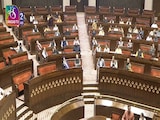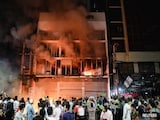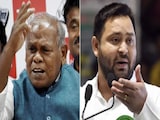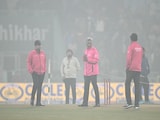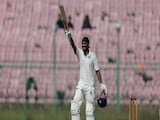After two World Wars, the international community set up rules and institutions to ensure that devastation of that scale never took place again. The international system went through a series of changes, with the rise of smaller powers and the replacement of a bipolar world order - as seen during the Cold War - with a multipolar world. Countries beyond the US and the former Soviet Union, like India, China, South Korea, and Japan, have emerged as important voices.
However, in the last three years, a series of events have shaken the foundations of the existing world order. Examples include China's heightened aggression against India, Taiwan, Japan, and the Philippines, the Russia-Ukraine war, and the terrorism unleashed by Hamas on Israel and Israel's response to the attacks. What is also a fact that cannot be ignored is the emergence of regional and multilateral groupings to respond to challenges that global bodies such as the United Nations (UN) have not been able to address adequately. The Group of 20 or the G20 is one such example.
India's rise as a leading player in international relations rests significantly on the ways in which it successfully presided over the G20 and navigated several challenges emanating from tectonic shifts in geopolitics.
India took over the presidency in December last year, while itself locked in a military conflict with China at the borders since 2020, and as Russian aggression in Ukraine continued unabated. The outcome of India's presidency of the G20 consisted of four big successes - the inclusion of the African Union in what is now G21; a biofuels alliance to expedite the uptake of biofuels through facilitating technology advancements; the India-Middle East-Europe Economic Corridor (IMEC) to facilitate connectivity and trade; and the Delhi Declaration that was endorsed by all member countries.
The Delhi Declaration has no footnote or Chair's Summary, and all 83 paragraphs were unanimously supported. It has a huge narrative of the India way to international relations and leaves a big footprint of India on the G20.
The India way looks at people as the center of international relations. The inclusion of the African Union, a continent with 55 countries, was spearheaded and accomplished under the Indian presidency. An important continent, with almost 18 per cent of the world's population, was not acknowledged prior to the Indian presidency. The biofuels agreement reflects the clear understanding that countries of the Global South need to balance the need to industrialise and provide employment to their citizens along with combating climate change. Understanding the tightrope that the Global South countries walk, the biofuels alliance thus advocated the use of biofuels, particularly in the transport sector.
The India-Middle East-Europe Corridor (IMEC) was envisaged in recognition of protectionist tendencies in trade across the world and the hurdles that creates for people, along with the problems caused by the lack of trade connectivity. At the centre of each of the meetings at the G20 this year, people-centric challenges and solutions to them were key. In the Delhi Declaration, there is a mention of rising commodity prices, including food and energy prices, cost of living pressures, and how global challenges like poverty, inequality, climate change, pandemics, and conflicts are humungous factors. Keeping politics at bay and focusing on cooperation to create solutions for people has been the India way, and it was witnessed even in the theme chosen by India - of Vasudhaiva Kutumbakam, or One Earth, One Family, One Future.
After the G20 summit in Delhi in September, the West Asian region or the Middle East lapsed into turmoil when Hamas operatives unleashed terror on Israeli civilians on October 7. As Israel launched a full-blown response to the attack, countries in the region chose sides based on their political preferences. With this emerged another crisis with a potential bearing on common people who may have nothing to do with international politics. At the G20 Finance Ministers' meeting in Marrakech, India stated how many emerging market economies were concerned about the impact of the West Asia crisis on fuel prices.
Fuel and commodity prices have deep implications for the common man, of course. India was among the first to condemn the Hamas attack in which hundreds of innocent Israeli civilians were killed. India has been observing the developments closely in the region and has been in communication with Israel as well as Palestine.
India was also one of the first countries to send humanitarian aid to Palestine. In all these responses, what remains central is people, irrespective of their nationality, creed, or political preferences. Prime Minister Narendra Modi's decision to skip the BRICS plus virtual meeting on Israel-Hamas was also seen in the spirit of India avoiding the politicisation of issues that shift the focus away from the common person.
An integral component of the India way is a complete rejection of terrorism. Terrorism, an international scourge, does not distinguish between state actors and civilians and deliberately chooses civilians to make their political stances known.
At the United Nations General Assembly meeting on Palestine in late October, India condemned terrorism and hostage-taking by Hamas, as well as the large-scale loss of civilian lives in Israel's retaliation. The position taken is similar to India's stance at the United Nations General Assembly in February on the Russia-Ukraine war. India abstained from voting on the Russia-Ukraine war but India's permanent representative at the UN, Ruchira Kamboj, said India remained concerned about the developments in Ukraine where conflict has "resulted in the loss of countless lives and misery, particularly for women, children and the elderly, with millions becoming homeless and forced to seek shelter in neighboring countries". India, she added, remains steadfastly committed to multilateralism and upholds the principles of the UN charter, and calls for dialogue and diplomacy.
The Indian official also pointed out that the principal organ of the UN - the Security Council - remains based on a 1945 world construct and is ineffective in addressing contemporary challenges to global peace and security.
Another integral component of the India way in international relations is espousing the reform of the United Nations on multiple fronts since it is built on the assumption of the supremacy of the countries of mostly the Global North. Equal respect for all and equality in partnerships is another key prong of the India way. The awareness of international rules and equal application of them, irrespective of the development status of nations, is a principle dear to India.
India does not enter into alliances because a division of the world based on the political needs and interests of countries is not in line with the country's worldview. At the G20 and in the various events that compounded the difficulties of presiding over the G20, the India way has been to put people at the centre of international relations and to use cooperation to find solutions. Equal respect and reciprocity are hallmarks of the India way. As shown during India's presidency, respect for one's own national interests, while respecting international laws and forging ahead for humanity is India's approach to a multilateral framework of international relations.
As opposed to China's hegemonic ways, which include economic exploitation, military escalations, and wolf warrior diplomacy, or those of the West with a long history of colonial exploitation and moral hectoring of others, the India way leverages the country's position as a leading player in international relations.
(Dr. Sriparna Pathak is an Associate Professor of China Studies, and the Director of the Centre for Northeast Asian Studies at O.P. Jindal Global University.)
Disclaimer: These are the personal opinions of the author.

